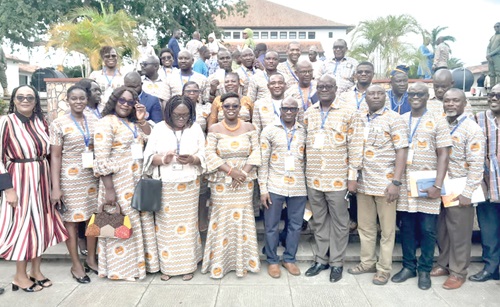Operations at Public Universities Halt as Administrators and Senior Staff Strike Over Unpaid Allowances, Affecting Essential Services
Administrative activities at public universities across Ghana have come to a standstill as the Ghana Association of University Administrators (GAUA) joins the ongoing strike by the Senior Staff Association of Universities of Ghana (SSA-UoG).
Both unions are protesting over unpaid allowances, and their combined action is putting university operations at significant risk.
Essential services such as hospital management, school admissions, and graduation processes are among the critical functions affected by the strike.
The decision by GAUA to join the strike has intensified the impact, as administrators play a crucial role in the day-to-day running of the universities.
Their absence has created a ripple effect, disrupting academic activities and potentially delaying important administrative functions that are vital for the smooth operation of these institutions.
The impasse is raising concerns about the immediate and long-term consequences for students, staff, and the broader educational system in Ghana.
Michael Owusu Ansah, the National President of the Ghana Association of University Administrators, has spoken on the matter, emphasizing the gravity of the situation.
He highlighted that the strike is not just about unpaid allowances but also about ensuring fair treatment and recognition for the essential roles that university administrators play.
According to Ansah, the allowances have been outstanding for an extended period, and repeated appeals to the government and university authorities have not yielded any tangible results.
The strike, therefore, has become a last resort to demand what is rightfully due to the staff.
The strike poses significant challenges for the universities. Hospital management services provided by university health facilities are crucial, not only for students and staff but also for the surrounding communities that rely on these services.
With the strike in effect, healthcare services are in jeopardy, potentially leaving many without access to necessary medical care.
Additionally, the disruption in school admissions and graduation processes is causing uncertainty and anxiety among prospective students and graduates.
The government and university authorities are now under pressure to address the demands of the unions promptly.
There are growing calls for a swift resolution to the dispute to prevent further deterioration of the situation.
If the strike continues, it could have severe implications for the academic calendar, potentially affecting the start of the new academic year and the progression of current students.
The ongoing strike highlights the broader issues of funding and resource allocation within the public university system in Ghana.
It brings to the forefront the need for a sustainable solution to the financial challenges facing university staff and the institutions themselves.
As negotiations continue, the hope is that a resolution can be reached that addresses the concerns of the unions while ensuring the continued functioning of essential university services.
LISTEN TO THE AUDIO BELOW:
Story by: Osei Akoto (Teacher Kojo) #Ahotoronline.com

